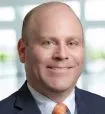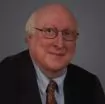Health Care Reform on Back Burner, but Hot-Button Issues Remain.
Although efforts to pass Affordable Care Act (ACA)
repeal-and-replace health care reform have ground to a screeching
halt, there is still quite a bit of buzz surrounding health care
matters. Chief among the issues is whether or not the Trump
administration will authorize cost-sharing reduction (CSR)
subsidies to be made to insurers in 2018, to help lower premium
prices for low-income individuals. President Trump has threatened
to end the subsidies, presumably as a form of leverage to force
Congress to act on repeal-and-replace legislation. Health insurers
are worried about the uncertainty, as they must decide upon premium
rates for the coming year within the next few weeks. As a
result, insurers may be forced to increase premiums and/or leave
the market altogether if the uncertainty is not soon put to rest.
Another burning topic is how the federal government should respond
to the growing opioid crisis. Although health care advocates
had hoped that any new health care legislation would include
specified funding to combat the rapidly-expanding crisis, the
president has in recent days stated that he is leaning towards a
"law-and-order approach" to the problem. Given these
issues—with others sure to follow—it seems safe to say
that the shadow of health care reform is still an inconvenient but
ever-present reality in Washington. (Hat tip to Stephanie A. Smithey, Timothy G. Verrall, and Richard C. Libert.)
Persuader Rulemaking. Comments are due today in
the U.S. Department of Labor's (DOL) proposal to rescind the
2016 persuader rule. The 2016 interpretation, which would have
subjected employers' interactions with labor lawyers and
consultants to potential disclosure, was permanently enjoined by a federal court late last year.
Because this issue impacts both employers and attorneys, Ogletree Deakins (together with six other law
firms) filed its own comments. Additionally, 17 states'
attorneys general have filed comments with the DOL in favor of rescinding
the rule.
NLRB Musical Chairs. This week, NLRB Chair Philip
Miscimarra notified the White House of his intention to leave the
National Labor Relations Board (NLRB) when his term expires in
December, rather than seek reappointment to a second term.
We'll have more on Chair Miscimarra in future editions of the
Buzz, but for now we are focusing on the impact of his eventual
departure on the Board's ability to roll back some of the
NLRB's recent policy mistakes. The earliest date that NLRB
nominee William Emanuel could be confirmed by the Senate and
thereby give the Board a 3–2 Republican majority is when the
Senate returns from its August recess on September 5. From that
date, there are 102 days (not including weekends and holidays)
before Miscimarra's term expires on December 16. If the
transition from Miscimarra's departure is not a smooth one, and
his seat remains vacant, then the Board's Republican majority
will be short-lived and the NLRB will be deadlocked,
2–to–2.
SCOTUS Arbitration Case. On Wednesday, the NLRB
filed its brief in the Murphy Oil case, asking the Supreme
Court to invalidate arbitration agreements containing class action
waivers. The case is hugely important for employers and has taken
an interesting turn since the Department of Justice (DOJ) reversed its position back in June and now
asks the Court to uphold such agreements. General Counsel Richard
Griffin will argue the case for the Board, which is set for October 2—the very
first day of the Supreme Court's upcoming term. Those
interested in reading more about the case can check out the amicus brief prepared by
Ron Chapman, Jr., Christopher C. Murray, and Brian E. Hayes on behalf of multiple business
groups.
Joint-Employer Lobbying. Remember how we recently
reported that the introduction of the joint-employer
"fix" bill in the House would reinvigorate the lobbying
campaign to overturn the NLRB's expanded joint-employer
standard? Well, former NLRB Board Member Peter Schaumber fired the
first salvo, with an op-ed in the Wall Street Journal (subscription
required). Notice that Schaumber's ask at the end of the
article is for Congress—and not the NLRB—to fix the
problem. Note that the bill is actually called the Save Local
Business Act, not the Protecting Local Business Opportunity Act,
which is a previous version of the bill.
Fiduciary Rule Postponed (Again). We've
previously reported on the postponement, until January 1, 2018, of
certain provisions of the DOL's fiduciary rule. Well, on
Thursday, the DOL sent to the Office of Management and Budget (OMB)
a proposal to further extend the effective date
of these provisions—which include the best interest contract
(BIC) exemption—to July 1, 2019 (18 months). After the OMB
reviews the proposal, the DOL is expected to make the proposal
available for public comment.
PBGC Seeks Comments. The Pension Benefit Guaranty Corporation (PBGC)
recently released its draft strategic guidance plan for fiscal years
2018-2022, which "describes the mission, long-term goals,
end-results that PBGC strives to accomplish by FY 2022 and how the
Corporation will monitor its progress." This essentially
allows PBGC-watchers to provide feedback on the regulatory/policy
road map that the agency will follow over the next several years.
Comments on the draft plan are due by Monday, August 14.
Additionally, pursuant to several executive orders, including
President Trump's "2 for 1" regulatory executive
order, PBGC has issued a Request for Information (RFI), which seeks
input "on regulatory and deregulatory actions PBGC should
take." Comments are due on August 25.
Proposed Changes to Forms for H-1B Workers. The
Buzz previously discussed the DOL's June announcement that the
agency would focus on fraud and abuse in foreign worker visa
programs. Following up, late last week the DOL's Employment and
Training Administration published its proposed changes to the Labor
Condition Application for Nonimmigrant Workers (LCA) pertaining to
H-1B workers. The DOL states that the purpose of these changes is
"to assist the regulated community with form completion;
provide greater clarity of existing employer obligations under the
programs; and promote greater program transparency by
collecting additional information on the employment of temporary
nonimmigrant workers by U.S. employers." (Emphasis
added.) Some of this additional information includes identifying
the name and location of the client or secondary employer. Initial
comments are due to the DOL on October 2, 2017. Once the DOL
reviews these comments, it will transmit its proposed changes to
the OMB, upon which the public will have another opportunity to
file comments.
New H-1B Study. A new study was released this week that will provide
additional authority for advocates of the H-1B visa program. The
study examines the impact of the H-1B program on the U.S. and
Indian economies and concludes that "workers in each country
are better off because of high-skill migration."
Hello, Goodbye, and Where Do I File This? Speaking of temporary
foreign workers, check out guitar great George Harrison's immigration paperwork filed for the multiple
times he and the Beatles traveled the long and winding road to the
United States for concerts, award shows, and charity events. U.S.
employers looking to hire foreign workers from here, there and
everywhere might take comfort in the fact that even George Harrison
had to deal with perplexing immigration red tape. Ultimately, while
the Beatles definitely had their complaints about paying the taxman
back in England, they certainly were able to come together when it
came to complying with U.S. immigration legal requirements (John and Yoko, not so much).
The content of this article is intended to provide a general guide to the subject matter. Specialist advice should be sought about your specific circumstances.


